Coming Out: Break The Wheel Or The Only Way Forward?
A friend of mine recently came out to her parents. When they told us the story later, we all congratulated them over a very long group video call and had a virtual “coming-out party.” Then, 15 minutes into our party, we started discussing the first time they had come out to us and the first “coming out party” we had thrown. That got me thinking, how coming out is never a one-time process (at least, not for common people like us). So why is the nerve-wracking experience that coming out truly is so important?
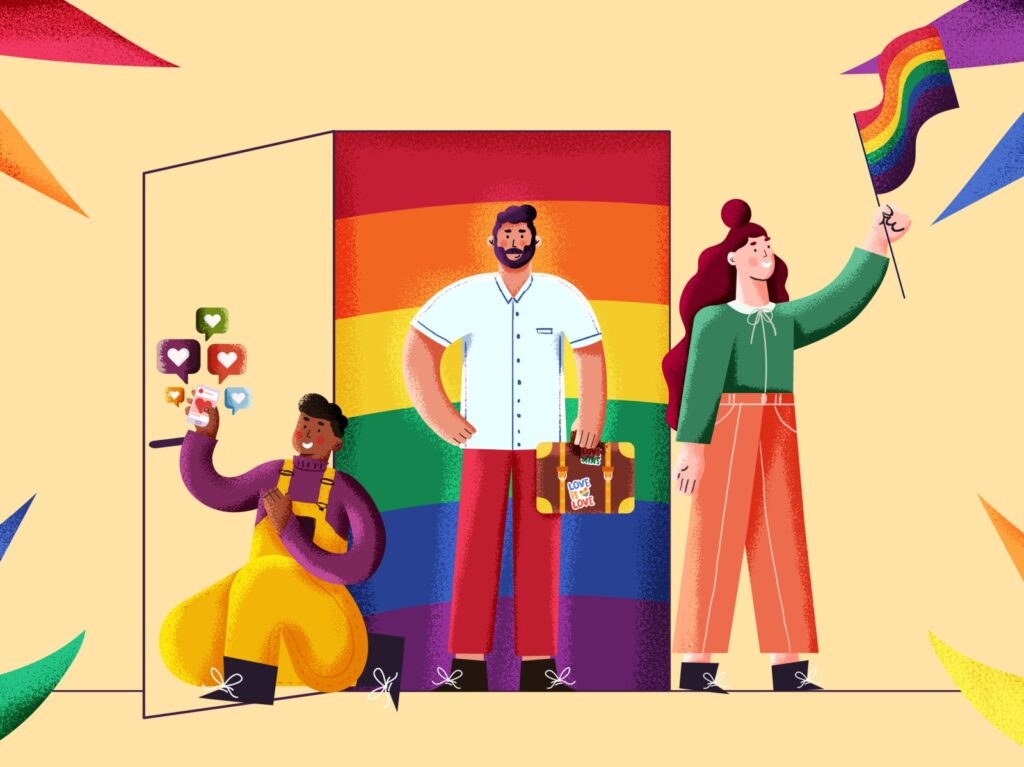
The History Behind the term “Coming Out of the Closet”
Countries from all over the world celebrate National Coming Out Day (NCOD) on 11 October every year to encourage more LGBTQIA+ people to “come out of the closet.” It marks the anniversary of the Washington March of 1987. Robert Eichsberg and Jean O’Leary started celebrating this day in the US as NCOD in 1988. Eichsberg felt that “many people think they don’t know anyone gay or lesbian” and that the narrative needed changes.
However, the word “coming out” did not originally refer to the LGBTQIA+ community. Earlier, the phrase described when young women were introduced into society or to bachelors. It then was used by gay men when they came out to other gay men rather than the world. Fast forward a few decades, and we get the meaning of “coming out” that we are so used to.
So why “closet”? A quick Google search will tell you how the word “closet” derives from “close.” While now, the word might evoke the image of a cupboard in your mind, long back, it used to refer to a private room. Thus the word closet derives its meaning from the idea of privacy or concealment, and, apparently, it does not discriminate between whether it’s your pile of unfolded laundry that has to be concealed or your identity!
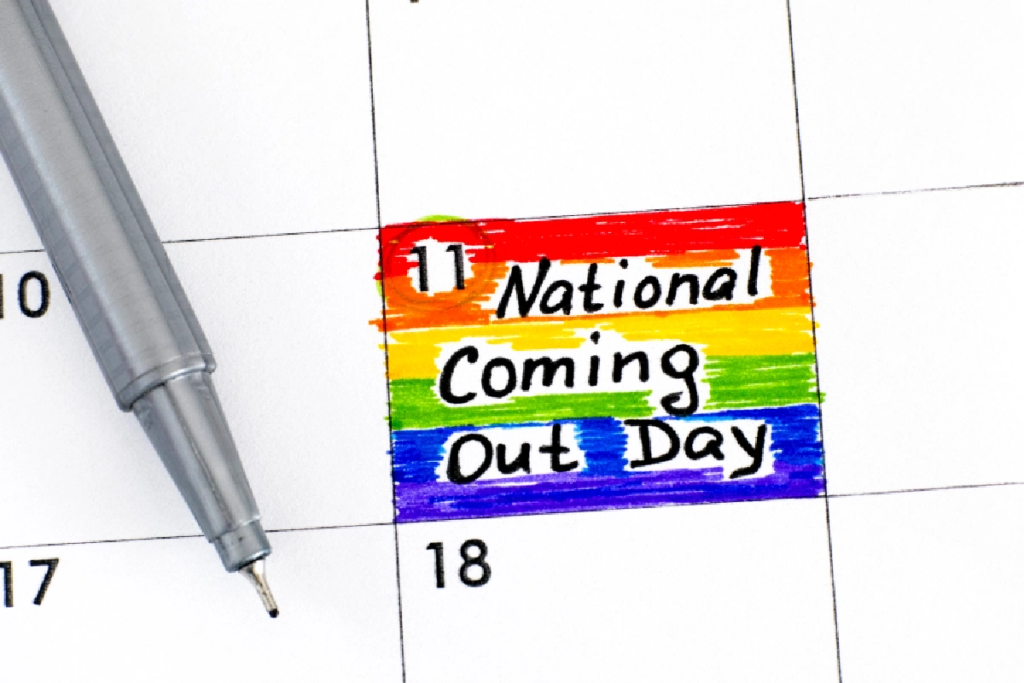
Why is Coming Out Definitely a Big Deal?
A lot of people, after coming out, have described themselves as feeling “liberated.” In fact, some people believe that coming out partly relieves the Queer community of the disproportionately large percentage of people facing mental disorders. In fact, a study showed how when transgender people were being referred to using their chosen name. They showed fewer symptoms of depression and occurrences of suicidal thoughts. However, before coming out, the pressure to pretend to be someone else takes a toll on every person.
“I was not even sure if anybody would actually like me, you know, how I actually am,” said one of my friends when I asked her what encouraged her to come out. “I had to take the risk and clear this insecurity.” Coming out has also helped people be in touch with their own identities. More than that, a person basically takes a stance for themselves and the whole community by coming out. Finally, of course, taking an active stand against institutionalized homophobia can be a really empowering feeling for someone!
In a perfect world, one would not have to “come out” and claim a space for themselves. But that does not work in our world. Because, in reality, no one is going to let you grab your space when it has been historically dominated by someone else. Coming out, thus, remains essential to the journey of normalizing one’s gender and the sexual spectrum.
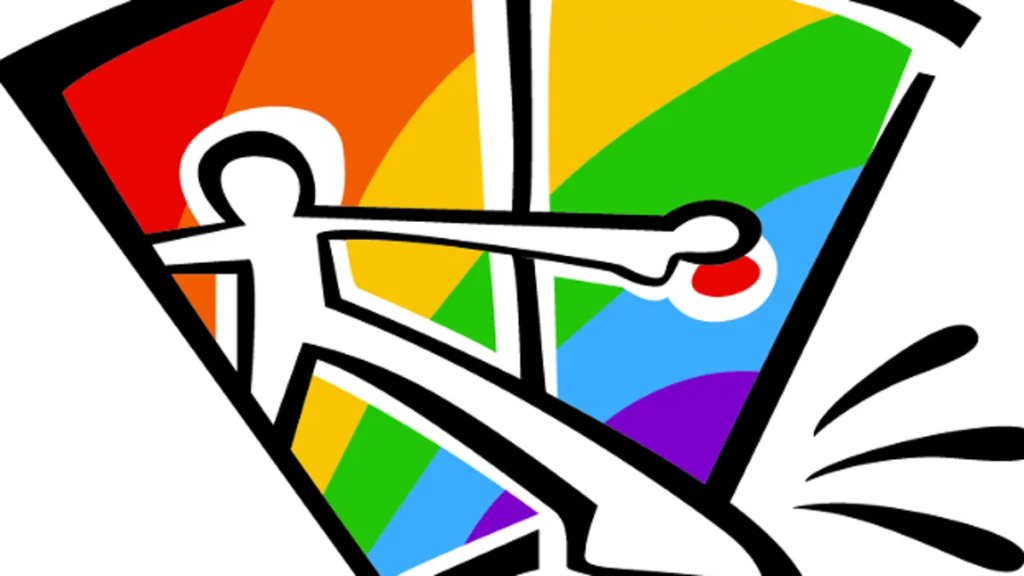
Is it Okay to Not Come Out?
When I told an old friend about my sexuality, she seemed very startled because she doesn’t remember me ever coming out. That day I had figured how it had become something the Queer community has to adhere to before owning their identity. There has evolved a culture that shames Queer people for being weak and ashamed if they do not want to come out yet. Many people seem to forget that coming out is not a one-time process. One often has to come out repeatedly- school, college, family, work, it never ends.
People fail to acknowledge their privilege when they expect everyone to be bold enough to announce to a not-so-safe world that they are Queer. Many Queer people live with their families who are homophobic or conservative. They might be living in fear of losing their accommodation or their source of finance. Some people live in fear of getting bullied by friends or peers. Some experience discrimination in their workplaces. Sometimes coming out is not an easy choice, and bigger things might be at stake. One can derive liberation and a sense of empowerment only when they have a supportive environment. The closet would be a safer shelter otherwise.
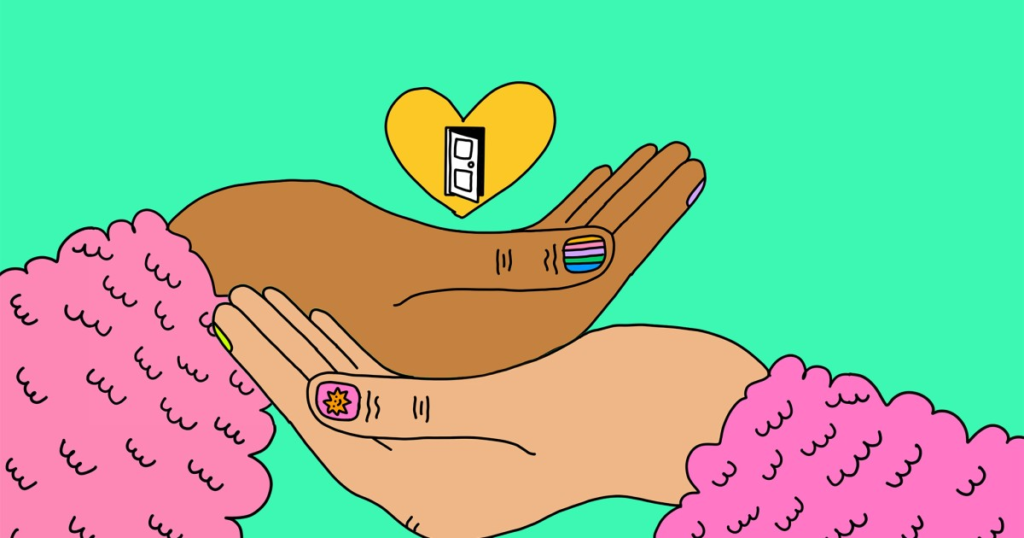
Does it Lead to Discrimination?
On the one hand, coming out may challenge heteronormativity, while on the other, it might feed the same evil. By announcing your sexuality and celebrating the same, you might be giving more power to the argument that you are different from others. This can lead to discrimination. Many people believe that sharing who they want to take to bed should not have to be thrown light on separately. No denying that equal treatment of all is far in the future, but the journey has to begin now. While screaming that “it’s 2021, and people no longer need to come out” might be stretching on optimism, we can not ignore the trouble one can land in by coming out.
Many people argue that “coming out of the closet” is a reductionist way of describing the experience. At present, more people are deprived of the chance of experimenting with their sexuality rather than having to hide in the closet. People owning up to their identity should understand the importance of being able to explore themselves.
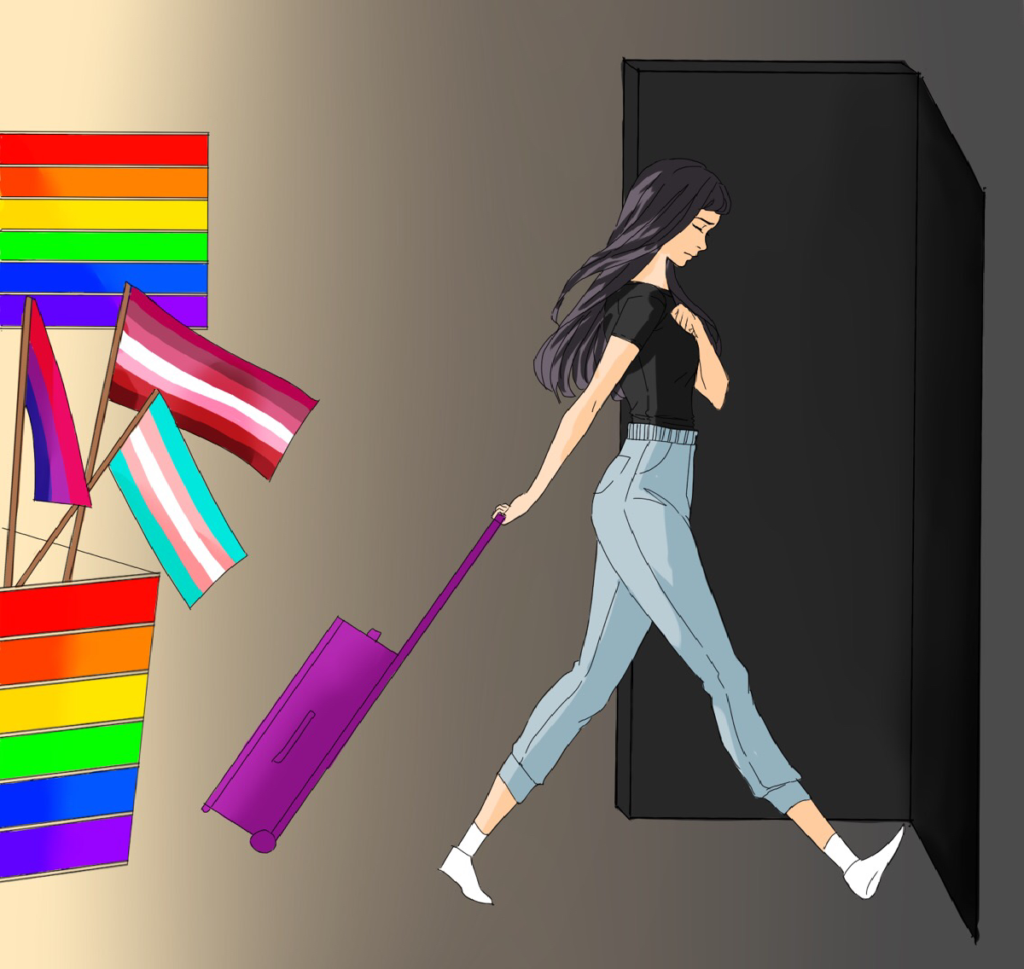
In Conclusion
It is Pride Month, the time for Queer people to be celebrating themselves. It is important to remember; some people feel empowered by coming out. But some find strength in acknowledging themselves without having to seek acceptance from others. Both are alright, and no one should feel ashamed for choosing their kind of liberation. Do not judge anyone who might be having trouble being honest about themselves. Instead, support them till they can come to terms with their identity. Everyone’s journey is different. As an ally, you can make someone feel less obligated to come out by conversing in gender-neutral language and avoiding intimate questions. Importantly, make sure to make one feel accepted if they do come out.
Coming out is a part of normalizing the spectrum, and no one is under any obligation to adhere to this route. But, whatever path you take, the end goal is to normalize it to the point, no one ever asks questions about anyone’s sexuality and gender.
Featured Graphic: Itti Mahajan
Author

